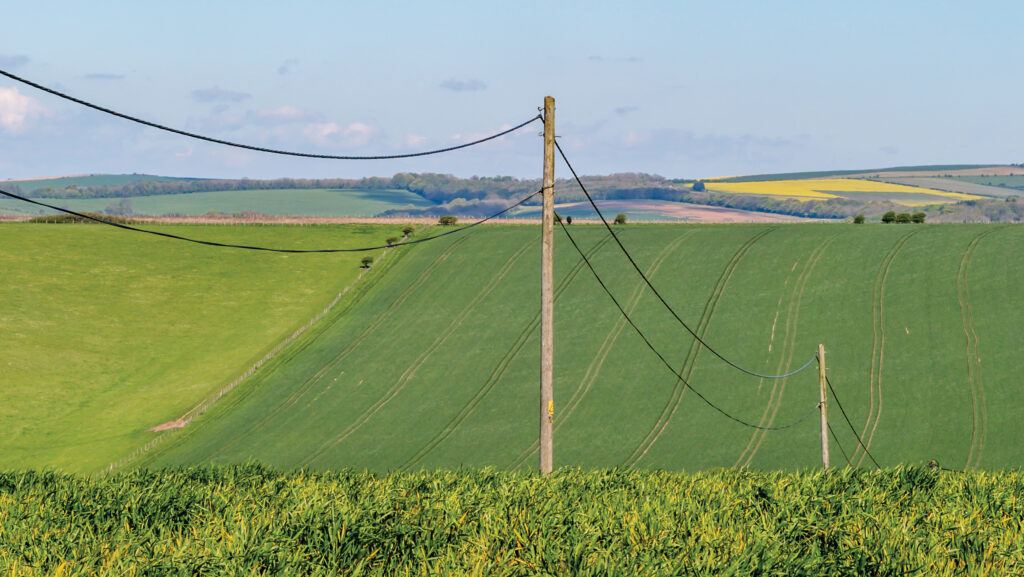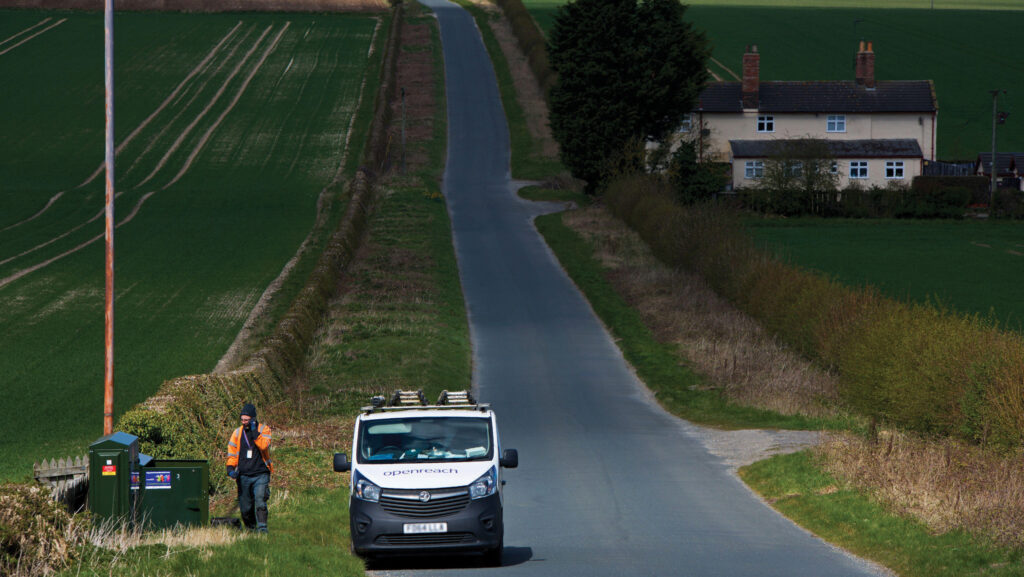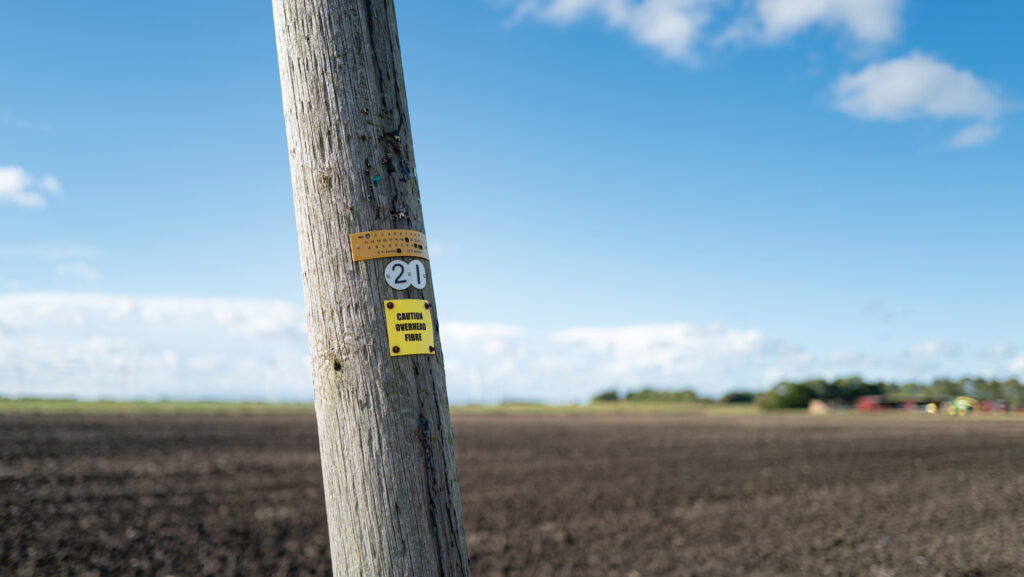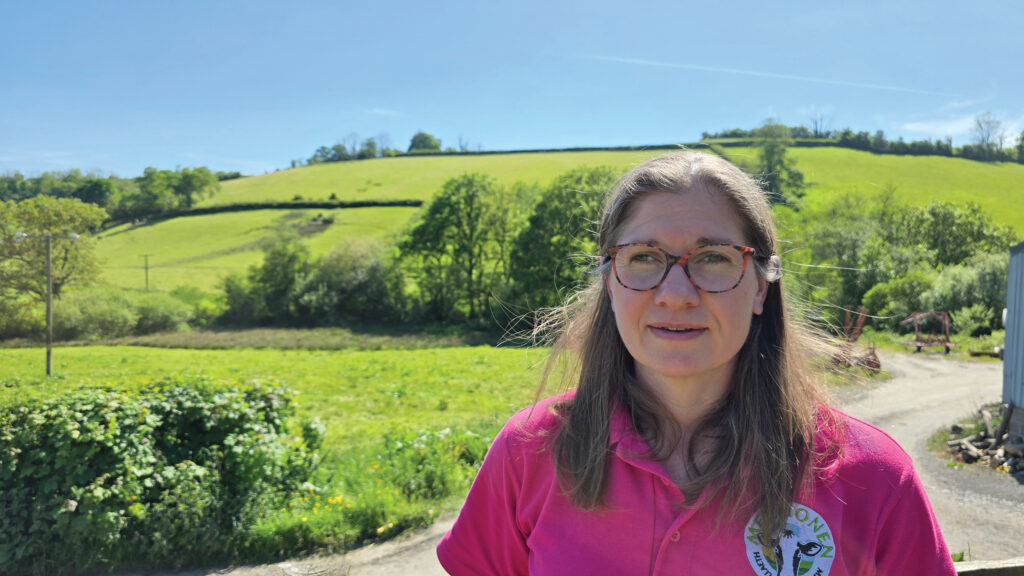End of analogue phones – what it means for rural communities
 © Adobe Stock
© Adobe Stock The traditional way of making phone calls is changing, similar to when analogue TV switched over to digital TV between 2007-12.
This means the “public switched telephone network” (PSTN) will be retired by January 2027 and replaced with “digital voice services” that are delivered over a broadband connection.
See also: Poor internet connections still holding farmers back
The switch is happening across the UK and many households have either already completed the move to digital, or the change is imminent and service providers such as BT, Sky, Vodafone, TalkTalk or Virgin will be in contact shortly.
Separately, ageing copper lines, over which broadband and telephone services have traditionally been delivered, will gradually be replaced with full fibre cables – also known as “fibre to the premises” (FTTP) – over the next decade.
Fibre rollout
Digital voice services can run over either technology, so having existing copper lines will not prevent people going digital.
But Openreach’s plan is to get full-fibre connections to 25m premises by the end of 2026, and to 30m by 2030.
Its FTTP footprint currently reaches 18m premises, of which 4.9m are in harder to reach rural locations.
Openreach’s ambition is to reach 6.2m rural homes and businesses by the end of 2026.

Positive development
Comms Council UK – the telecommunications industry’s representative body – insists this change should be seen as a positive development.
“The infrastructure that supports our telecoms network is just no longer fit for purpose,” explains chairwoman Tracey Wright.
“There’ll be more faults, and it’s becoming more susceptible to weather as copper lines don’t cope well with the wet.”
The move to digital isn’t a complete jump into the unknown, with most people having smart phones and laptops, Ms Wright says.
But as modern life moves on, so must the infrastructure required to move data around the network.
Benefits of going digital
The benefits of going digital, Comms Council UK says, include a more resilient and robust network and higher internet speeds.
Over time, Ms Wright adds, customers should also see a reduction in price, as the cost to maintain the network reduces and competition increases amongst providers.
NFU vice-president Rachel Hallos, however, says many farmers are still concerned – especially those in remote areas, where reliable broadband and mobile coverage simply isn’t guaranteed.
“The move to digital landlines is a significant change to our national communications network, and it is vital that rural communities are not left behind,” she says.
But Openreach director for customer migrations James Lilley says the industry is working hard to ensure the benefits will reach beyond towns and villages.
“We’ve built to about five million premises in rural areas already,” he explains.
Openreach, he adds, is also working with the government on its Gigabit broadband scheme, which includes £800m of investment, and has been awarded a contract that will see more remote places get full-fibre access.
As well as a clearer, more reliable service, Mr Lilley says a digital system will also help protect customers from scammers and nuisance calls.
Risks and power cuts
There are some risks associated with the digital phone service, however.
Because it does not have power provided like the current analogue network does, if there is a power cut, your telephone will stop working.
“If your broadband goes off because you’ve got a power cut, you’ve got no way of making a phone call unless your mobile phone’s working or you have a battery back-up,” explains Ms Wright.
Mobile not-spots, she adds, are another known risk for rural and farming communities, though telephone companies do have an obligation to protect vulnerable customers.
Contingency plans
Recognising the problem, Ofcom is obliged to ensure that providers don’t leave customers out in the cold.
“If you’re recognised as dependent on your landline and there is no mobile signal in your home, then your provider has to provide a resilient solution for when there is a power cut,” explains Ofcom policy director, Cristina Luna-Esteban.
“What we are requiring providers to do is to offer this particular group of customers a free resilience solution, such as a battery that powers the broadband router, that allows them to call 999 in a power cut.”
Another resilience solution that could be offered, provided there is some mobile coverage, Ms Luna-Esteban adds, is a hybrid phone.

© Adobe Stock
“It looks like a normal phone, but it’s got a SIM and battery, so it will work in the event of a power cut because it will go on to the mobile network.”
Customers are also advised to make sure they have alternative methods of communicating in case of an emergency.
The NFU says it is working with providers such as BT to ensure that vulnerable people and those without good broadband aren’t forgotten.
“Commitments to offer alternative services – such as dedicated landlines and battery back-ups, which are crucial during power outages or when storms knock out internet signals – are welcome, but delivery on the ground must match the ambition,” says Ms Hallos.
What you need to do to prepare
In order to prepare for the switchover, Openreach director James Lilley says the first thing is not to panic.
“Whoever provides your landline at the moment – speak to them and they’ll be able to guide you through what the options are,” he says.
Mr Lilley also advises customers to make sure they know exactly what other equipment currently makes use of the existing phone line, and to upgrade the technology or get adapters where suitable.
“Certain things we’ve come across that are connected to PSTN lines include sheep weighing stations, burglar alarms, and telecare devices.
“It’s really important to understand what’s connected in your business, on the farm, or around your house, and upgrade where needed,” says Mr Lilley.
Ofcom’s Christina Luna-Esteban adds that, in an emergency, you can still make 999 calls on your mobile phone, even if you are without signal from your network provider.
How does it work?
If you already have a broadband connection, then the digital phone line, also referred to as a voice over IP (VoIP) service, will use this.
For those customers who don’t have a broadband connection, Ofcom says one will be needed to specifically support the VoIP service.
Either way, the Comms Council UK and Openreach are clear that the telephone network as we know it will stop functioning in the next five years.
Case study: Satellite solution for farm without a landline

Lowri Thomas © MAG/Anne Dunn
Lyn and Lowri Thomas, who run a dairy herd of 60 milking cows plus followers at Pantfeillionen, Horeb, Llandysul in Ceredigion, have a landline – but it’s not connected, following a major storm last January.
While other households in the valley have been getting connected to the digital network, the Thomas family is still waiting for their landline to be fixed.
“We have tried to sort it out with BT, but you always get put through to a different department, and even with the best will in the world, you can’t be on hold for half a day,” says Mrs Thomas.
Their way of making phone calls from the house is via wi-fi, calling through their mobiles, using broadband provided through satellite, which they’ve had since 2021.
“Mobile phone reception here is patchy and we do need to be able to call into the house, and make a phone call from the house to each other when we’re out and about on the farm, so we use wi-fi,” says Mrs Thomas.
“It works for us most of the time, but everything is now based around the electricity supply and that adds an extra dimension, especially with the power cuts we get.”
Generator
To ensure there is a power back-up for milking, and to keep the house running, the family has a generator.
However, Mrs Thomas says that doesn’t help others in the rural area.
“After last winter’s storms, most of the valley was without power and they all have fibre now. But they were out for a long time with the repairs that needed doing.”
Rather than spending millions on fixed line connectivity, Mrs Thomas would prefer to see efforts made to improve mobile connectivity and dealing with so-called “not-spots”.
“They should make more effort to sort the mobile signal out. After all, farmers spend more time outside than they do indoors.”
